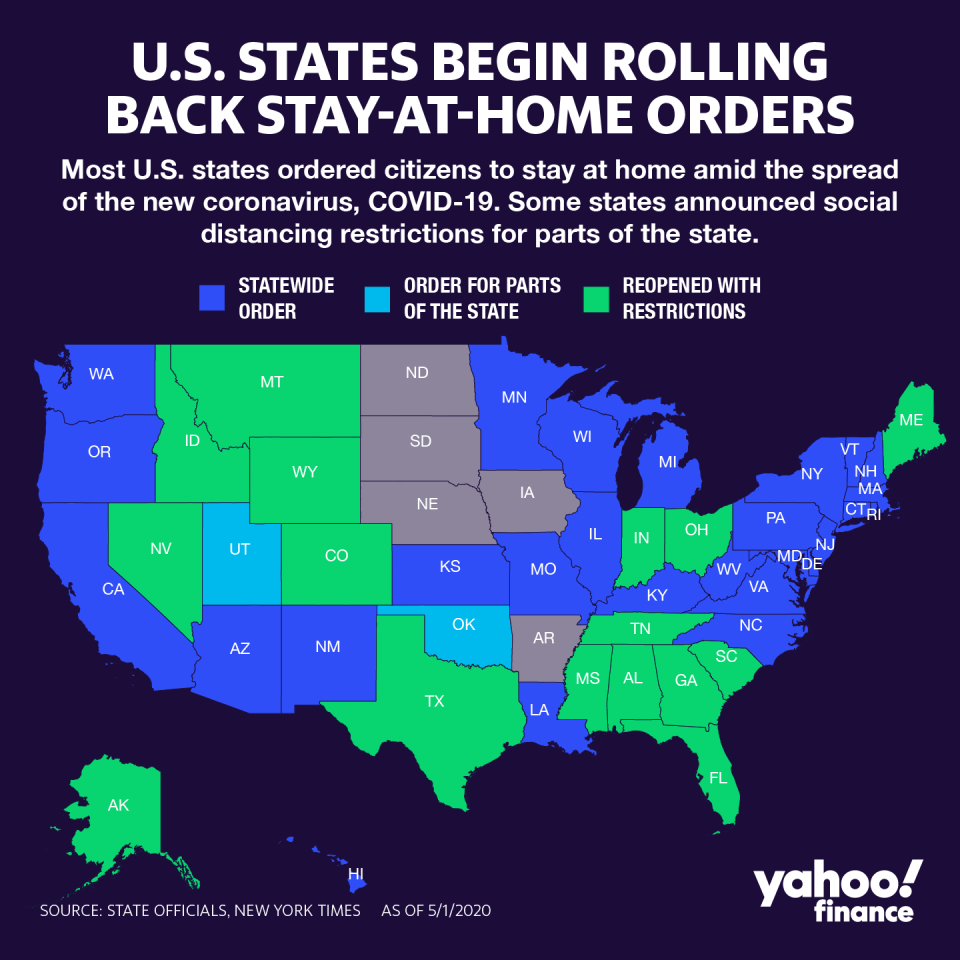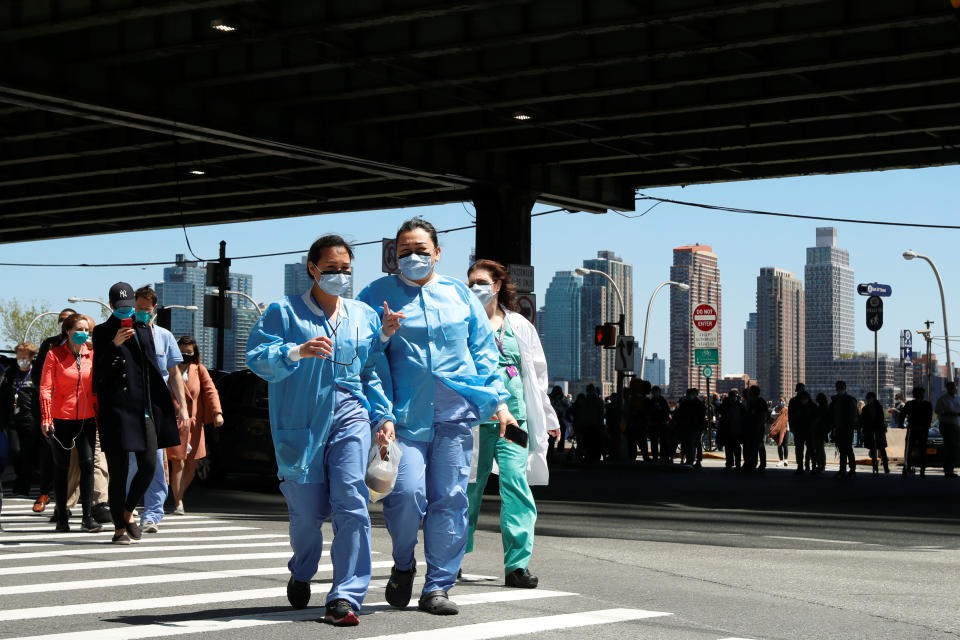The Republican trap for workers exposed to coronavirus
Nobody needs greedy class-action lawyers sucking the last drop of life out of businesses trying to reopen amid the coronavirus pandemic. But Republican plans to protect businesses from such liability could make workers and consumers coronavirus cannon fodder.
Republican lawmakers and President Trump’s top advisers are now pushing for a new law that would prevent lawsuits against companies if workers or customers contract the coronavirus while working or doing business there. “Small businesses and other Americans on the front lines of this fight must receive strong protections from frivolous lawsuits,” Senate Majority Leader Mitch McConnell and House Minority Leader Kevin McCarthy, the top Republicans in each chamber, said in a joint statement issued May 1.
The Trump White House echoes that claim. White House economic adviser Larry Kudlow said on CNBC recently, “You’ve got to give businesses some confidence that if something happens, you can’t take them out of business. You can’t throw big lawsuits at them. And I think liability reforms and safeguards are going to be a very important part of it.”
The GOP’s aim is to include some kind of liability immunity in the next stimulus bill, which will focus on financial aid to strapped states and cities. Democrats control the House and probably won’t allow it. But the tension highlights an ugly scenario likely to unfold as some officials, mostly Republicans, try to hurry reopenings, while businesses and workers ponder who’s responsible if people go back to work and contract the virus.

“There's going to be a ton of litigation about the obligations businesses owe to their employees, about liability, about insurance responsibilities,” law professor Stephen Vladek of the University of Texas told Yahoo Finance recently. “The more we see some jurisdictions attempting to get things back to normal too soon, the more we're going to see that litigation balloon just explode because there's going to be all kinds of new and unprecedented claims, from everyone from the customers to the employees to the franchisees.”
Several states are relaxing stay-at-home orders and allowing some businesses to reopen, including Georgia, South Carolina, Tennessee, Florida, Texas, Colorado and others. The Trump administration has issued guidelines for the phased reopening of businesses—and none of those states appear to meet them. Criteria include a sustained decline in people with coronavirus symptoms and in confirmed cases. In some states infection rates may have peaked, but only recently, which means it’s too early to reopen, according to the Trump guidelines. In other states, infection rates probably haven’t peaked yet.
Many public health experts say it’s too soon to reopen. “There are some states, some cities looking at that and kind of leapfrogging over the first checkpoint," Dr. Anthony Fauci, the government’s top infectious disease expert, told CNN on April 30. “You could get away with that, but you are making a really significant risk." Allowing people to mingle without widespread testing and legions of contact tracers could lead to new coronavirus outbreaks, more infections, more deaths and even public panic if people feel the government isn’t looking out for them. Businesses would have to close all over again, prolonging a recovery.
The idea behind liability immunity is to reduce the risk to businesses of reopening. But it would essentially transfer that risk to workers, who would end up with less recourse—and maybe none—if they got sick on the job. There’s also moral hazard involved in protecting businesses from liability, because they might forego protective measures they’d otherwise put in place, figuring they bear no responsibility if something goes wrong.

A liability shield could also embolden governors trying to force people back to work, regardless of the risk. The Republican governors of Iowa and Oklahoma are already heading in that direction, threatening to strip unemployment benefits from workers who refuse to return to reopened businesses.
So overall, the GOP plan is to protect businesses from liability even if they reopen before federal guidelines say they should. It makes ambulance-chasing lawyers look good.
Cornell University’s Patricia Campos-Medina told Yahoo Finance on May 1 that businesses should be working with government safety regulators to set standards for safely reopening. “They can develop protocols so all employers set the same standard to protect workers when they get back to work,” she said. “Rather than thinking of how to protect themselves from a lawsuit, they should be thinking about how to protect their workers.”
To business owners, that might sound like more unwelcome regulation at a time when they’re barely surviving. But better to figure out how everybody can survive than for some to survive at the expense of others. We do have too much litigation in America, but we also have a reasonably strong set of workers’ rights. The middle of a pandemic is the wrong time to loosen those.
Rick Newman is the author of four books, including “Rebounders: How Winners Pivot from Setback to Success.” Follow him on Twitter: @rickjnewman. Confidential tip line: rickjnewman@yahoo.com. Encrypted communication available. Click here to get Rick’s stories by email.
Read more:
Why China tolerates animal markets that produce deadly viruses
These Republican states are ignoring Trump’s reopening guidelines
Get the latest financial and business news from Yahoo Finance
Follow Yahoo Finance on Twitter, Facebook, Instagram, Flipboard, SmartNews, LinkedIn, YouTube, and reddit.

 Yahoo Finance
Yahoo Finance 
